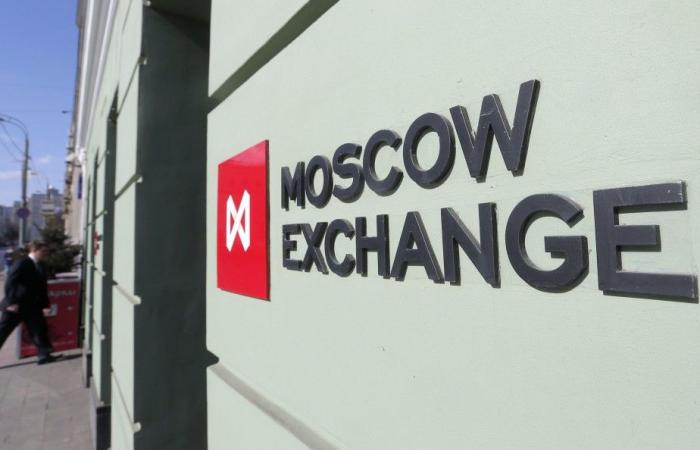This measure was announced on Wednesday by the Bank of Russia (BCR), in the wake of sanctions imposed by the US Treasury on several Russian financial institutions, including the capital’s stock exchange, as well as the Russian National Clearing Center (NCC). ) and the National Settlement Depository (NSD), both owned by MOEX.
Although expected since November 2023 by the BCR, the sanctions against the Moscow Stock Exchange have not failed to raise many questions and concerns regarding the possible repercussions on the ruble exchange rate and on foreign currency savings.
Several experts, interviewed by the Russian media, judge that the suspension of operations in dollars and euros on the Moscow market will lead to a “significant increase in the spreads between the purchase and sale of currencies”.
As trade in dollars and euros, which represented more than 50% of the total MOEX trading volume in May, will now take place on the over-the-counter interbank market, there will no longer be an instrument guaranteeing the visibility of quotes for all market participants, believes Denis Domashchenko, financial market analyst at the Plekhanov Russian University of Economics.
In other words, banks will exchange information on rates among themselves without the intermediary of a central exchange, which will create a market more prone to manipulation, explains the expert who expects an increase in volatility in the market over the counter, with large fluctuations in the exchange rate.
On Thursday, the ruble fell to its lowest level in almost three weeks against the dollar following the suspension of stock exchange trading in dollars and euros. On the interbank market, it had reached its lowest level, at 91.49 units per greenback, with some banks having taken speculative positions before the official launch of the offers at 06:50 GMT.
On this subject, Yuri Popov, strategist at SberCIB Investment Research, agrees that in the short term, “there could be high volatility and significant deviations at the exchange desks.”
These differences should decrease in the medium term, according to the economist, and could lead to a strengthening of the ruble, due to a “decline” in capital outflows.
Independent expert Andrei Barkhota, for his part, minimizes the effects of the suspension of trade in European and American currencies, specifying that the Central Bank of Russia began to prepare for possible sanctions against the Moscow Stock Exchange from the third quarter 2023.
“Working with toxic currencies will require more complex and multi-stage operations,” he said, joining the position of the Kremlin, which places all its trust in the BCR, headed by Elvira Nabioullina.
In the opinion of the spokesperson for the Russian presidency, Dmitry Peskov, the Bank of Russia is able to ensure stability in all markets in this new economic situation.
“Let’s base ourselves on the statements of the Central Bank. In fact, the Central Bank is a mega-regulator, it is capable of ensuring the stability of all markets,” he declared, in response to questions from the journalists.
The regulator of the Russian banking system wanted to be reassuring regarding the possible impact of American sanctions on the Moscow Stock Exchange, noting that “the role of the American dollar and the euro on the Russian market has continued to diminish over the course of of the last two decades.
However, despite these assurances, experts are unanimous: American sanctions against MOEX will influence the key rate of the Bank of Russia, which could be revised upwards at the next meeting of its steering committee on July 26.






